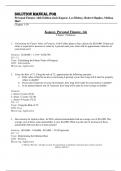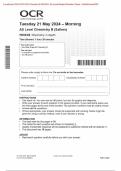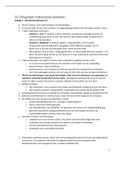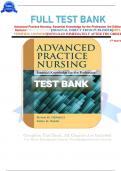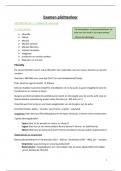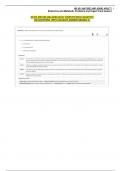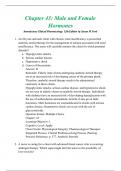Exam (elaborations)
‘In McEwan’s ‘Atonement’, war is positioned as a greater crime than Briony’s’. To what extent do you agree?
- Module
- Elements of Crime Writing
- Institution
- AQA
I thought this essay would have come up on the 2024 exam but it didn't. It is an A* worthy response.
[Show more]





